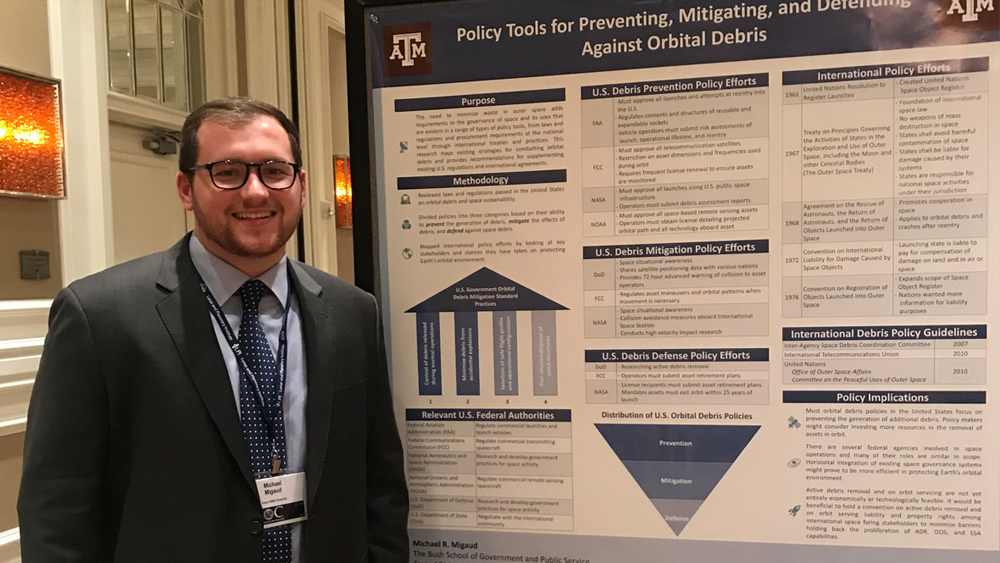
Michael Migaud, a second-year Master of Public Service and Administration student and graduate assistant researcher in the Institute for Science, Technology, and Public Policy at the Texas A&M Bush School of Government and Public Service, presented his research on policy tools used to combat space debris at the National Aeronautics and Space Administration’s First International Orbital Debris Conference. His presentation was titled “Policy Tools for Preventing, Mitigating, and Defending against Orbital Debris.”
Migaud analyzes the current state of space debris in Earth’s orbital environment and then uniquely maps US policies based on their ability to prevent the accumulation of orbital debris, mitigate effects of polluted orbital patterns, and defend against space waste through debris removal and recovery. He also highlights current policy on the international stage intended to promote sustainable activity in Earth’s orbital environment.
After analyzing current policy efforts in the US and internationally to combat orbital debris, Migaud claims space waste policies are skewed toward prevention and mitigation and give little attention to debris removal. He suggests that more defensive policies dedicated to debris removal will become more prevalent once active debris removal and on-orbit servicing technologies become economically and technologically feasible. He also suggests the horizontal integration of space governance and increased regulatory coordination between the National Aeronautics and Space Administration, Federal Communications Commission, Federal Aviation Administration, and the National Oceanic and Atmospheric Administration might be beneficial for future regulation of outer space activity.
Migaud, Michael R. 2019. “Policy Tools for Preventing, Mitigating, and Defending against Orbital Debris.” Paper presented at the National Aeronautics and Space Administration’s First International Orbital Debris Conference. Sugar Land, TX. December 9-12.

